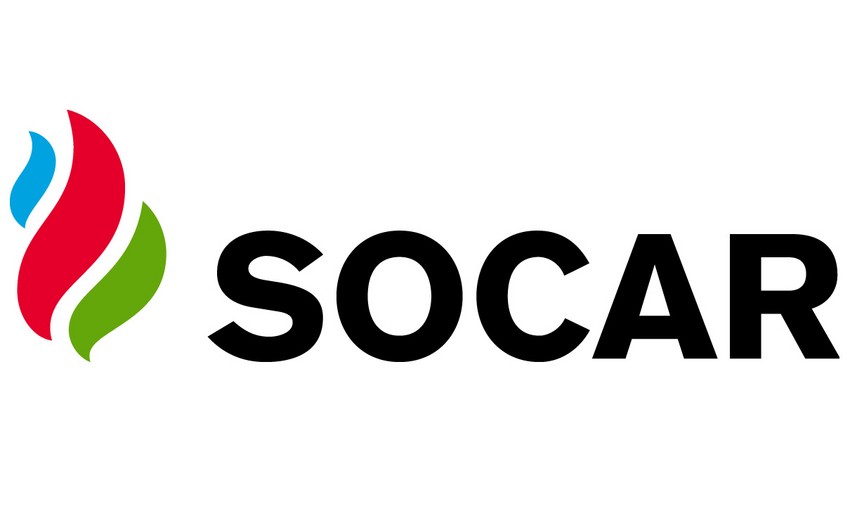Fitch Ratings international ratings agency has revised the Outlook on State Oil Company of the Azerbaijan Republic’s (SOCAR) Long-Term Issuer Default Rating (IDR) to Stable from Negative and affirmed the IDR and senior unsecured rating at 'BB+'. The Recovery Rating is 'RR4', Report informs referring to the agency’s message.
The rating actions follow the revision of the Outlook on the sovereign rating of Azerbaijan (BB+/Stable).
“SOCAR is fully owned by the state and its rating is equalized with that of Azerbaijan under Fitch's Government-Related Entities (GRE) Rating Criteria. This is underpinned by state support provided to the company in the form of financial guarantees, cash contributions and equity injections, as well as SOCAR's social functions and its importance as a state vehicle for the development of oil and gas projects,” reads the message.
"We assess SOCAR's Standalone Credit Profile (SCP) at 'b+', with high leverage being the main constraint," Fitch added.
“Leverage High but Under Control: SOCAR's 1H20 performance was better than expected in our previous rating case, with broadly flat EBITDA yoy, as weaker performance in the upstream segment was partially offset by stronger trading operations. We estimate 2020 EBITDA will have only moderately fallen yoy and should rebound in 2021, on stronger international oil prices and increased regulated fuel prices since January 2021. We expect funds from operations (FFO) net leverage to remain below 4.5x over 2021-2023, materially below our 6x downgrade sensitivity, and in line with the 'b+' SCP,” the agency said.
Supportive Business Profile: SOCAR's 'b+' SCP takes into account its high leverage, but also its fairly high production (267,000 barrels of oil equivalent (boe) per day) and robust oil proved reserve life of 12 years. SOCAR's unit profitability measured as consolidated FFO to total upstream production was healthy at $20/boe in 2019, lower than that of integrated oil majors (e.g. Royal Dutch Shell plc, AA-/Stable, $32/boe), which have stronger downstream divisions, and closer to that of Russian oil producers (e.g. PJSC Lukoil, BBB+/Stable, $20/boe). The upstream segment is SOCAR's key profit driver.
Close Links with the State: SOCAR's rating is equalized with that of the state given their strong ties under Fitch's GRE Rating Criteria. We assess status, ownership and control and support track record factors as well as socio-political and financial implications of GRE's default as 'Strong' resulting in a score of 30, according to Fitch.
Most oil and gas projects in Azerbaijan operate under production-sharing agreements, in which SOCAR has a minority stake and where it also represents the state and is involved in marketing the latter's share of crude oil and gas (profit oil). In addition, SOCAR has stakes in some other major energy projects promoted by the state, such as the Southern Gas Corridor (SGC).
Taxes paid by SOCAR accounted for almost 10 percent of government revenue in 2019. The state guarantees 9 percent of SOCAR's debt and provides equity injections to cover cash deficits, when needed.
“Our assessment of links between the state and SOCAR is also supported by the latter's social role. One of its key functions is production and sale of fuel at regulated prices to the domestic market, which are enough to cover the company's operating cash costs but are lower than international prices. Also, SOCAR employs more than 50,000 staff in Azerbaijan. It does not pay dividends but it may be required by the state to make cash contributions to the state budget, government agencies or to directly fund some social projects,” reads the report.
The state exercises significant control over SOCAR's profitability and balance sheet through regulation of domestic fuel prices, cash injections, government distributions and other measures. To a large extent, SOCAR's high leverage is a function of the company's close links with the state but we believe that the government has incentives to keep SOCAR adequately funded.
“We expect SOCAR's capex to moderate given the SGC and the STAR refinery in Turkey, SOCAR's two large projects developed together with partners and not consolidated on the company's balance sheet, have been brought on stream and should not require material additional capital injections. However, we have limited visibility over possible cash outflows related to its other projects, such as its upstream projects and modernization of the Heydar Aliyev refinery,” Fitch added.


 https://static.report.az/photo/f0f86e48-de90-35ee-b8e8-f9089ea7d7dd.jpg
https://static.report.az/photo/f0f86e48-de90-35ee-b8e8-f9089ea7d7dd.jpg

